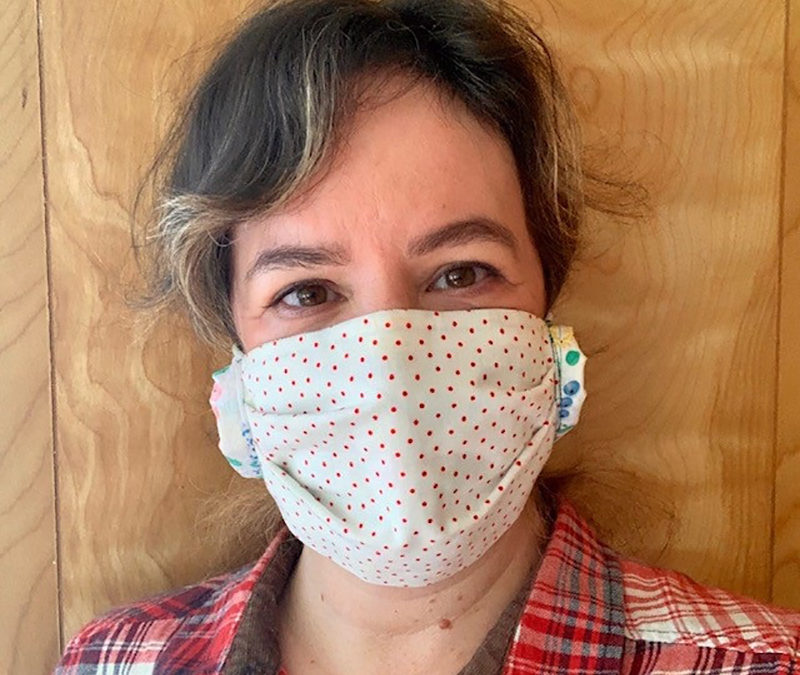In March, following the stay-at-home order, I went on a final grocery run, checked in with family by phone, and settled in at home. I told myself, “There’s plenty I can do at home, it’ll be fine.” I planned for my needs and, despite harrowing news from friends abroad, I felt secure. One month later, many of us have been laid off and are fighting for unemployment benefits while others are working increased hours as essential staff. Retirees are strategizing for their daily needs, children are adjusting to on-line school. Parents working from home, juggling job duties and childcare and technology challenges. Many of us are feeling waves of exhaustion, frustration, overwhelm. How do we make sense of these feelings? How do we grieve our lost routines with the uncertainty of the path ahead? We can turn to Elizabeth Kubler-Ross’s famous ‘Stages of Grief’ model to organize ourselves for this journey. It is important to remember the stages are not linear; we don’t walk through them sequentially.
Denial: Denial can serve a helpful purpose in getting us through the first few days and weeks following loss. In the midst of COVID-19, denial can show up when we think, “This is just a flu and I don’t get sick, I’ll be fine.” Denial can push us to busy ourselves in work, or find other constant distractions. As time passes, denial often dissolves and gives rise to other stages.
Bargaining: When things are beyond our control, as with grief and COVID-19, bargaining is a way to regain a sense of authority. “I’ll stay home for now, but this better be over by June” or “If I stay home, everything will be fine by my birthday in August.” Recognizing that we can’t bargain our way to a better situation is a step towards resolution.
Anger: In the midst of COVID-19, much anger has been expressed at government leaders, international travelers, entire cultures. Anger is a valid emotion and worth exploring, but it is not okay to take it out on those around us.
Sadness/Depression: For many of us the sadness of our circumstances is becoming undeniable. We feel the sadness o missed graduations, birthdays and holidays; we long for contact with friends and loved ones. Missing everyday milestones can be heartbreaking and lead to increased feelings of loneliness and depression. It’s okay to be sad right now.
Acceptance: Originally identified as the final stage of grief, acceptance is when we recognize the reality of our circumstances: we are in a pandemic, we are socially distancing and staying home in order to protect one another, and we don’t know when this will end. Acceptance of the present moment, no matter the pain, is where we find some
emotional freedom.
Meaning-Making: In the sixth stage of grief, introduced by Davis Kessler and endorsed by Kubler-Ross, we discover meaning-making as a byproduct of acceptance — once we accept our reality, we can make something out of it. When we create meaning, we are able to see our struggles in new ways. Meaning-making does not eliminate pain, but it can
give it purpose.
There are endless ways of making meaning of this time. By connecting with friends and spiritual communities online, we can explore a new side of relationships and new textures to our faith. When we advocate for equity in healthcare and unemployment benefits, we give our anger a voice for change. Trips to the grocery store for neighbors in higher risk categories connects us with others in a valuable way. When we spend reflective time by ourselves, we remember our needs and values, and tune into our deeper selves. When we find enjoyment in the often-tedious task of cooking, mealtimes become creative activities. Noticing endearing quirks in our pets can fill us with gratitude for the ways they enrich our lives. Listening to music reminds us to move, dance, play. Spending time outside can help us connect with nature, appreciate rural life, enjoy songbirds and notice signs of spring. Through these practices, both great and small, we can find value.
In the coming months, as leadership and health professionals adjust our current restrictions, we will dance between stages — we might revisit denial, move directly towards anger, wade back into bargaining. At each stage, we can meet ourselves with compassion, remembering this grief process and, again, move gently towards meaning-making.
AUTHOR: Terra Marzano, Licensed Clinical Social Worker, Rinehart Clinic
For more local health and wellness information, follow Tillamook County Wellness on Facebook, Instagram and Twitter.

